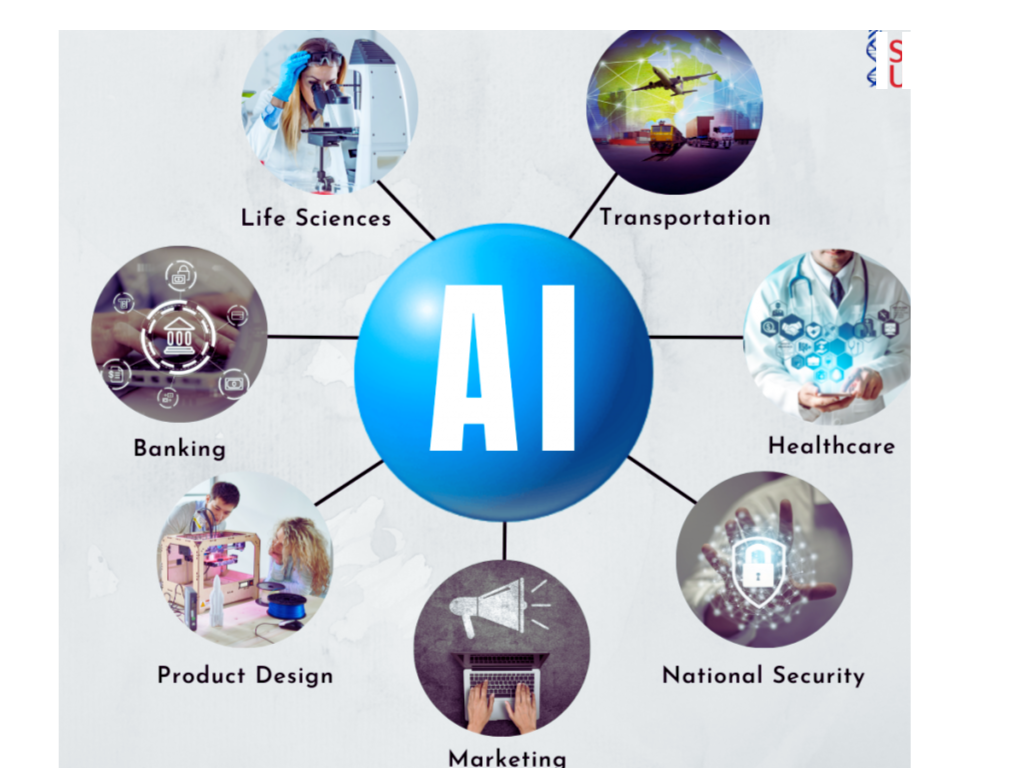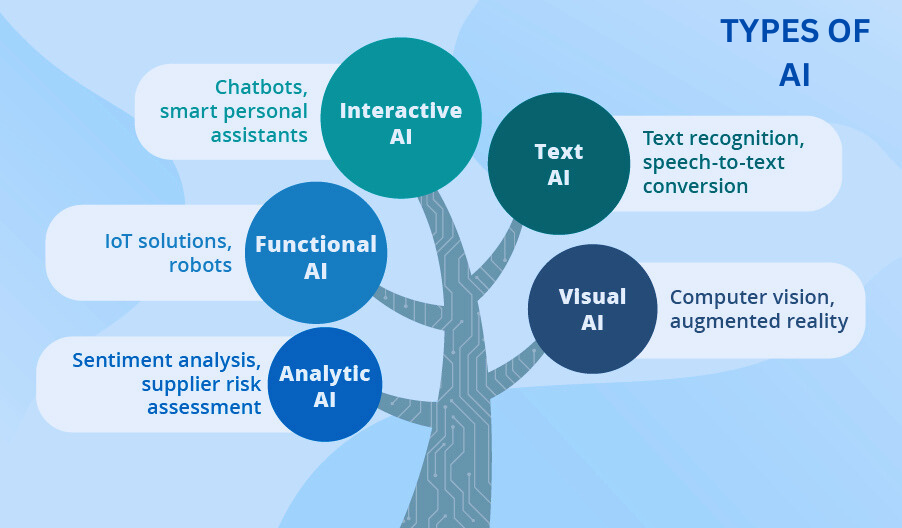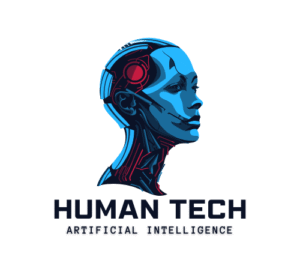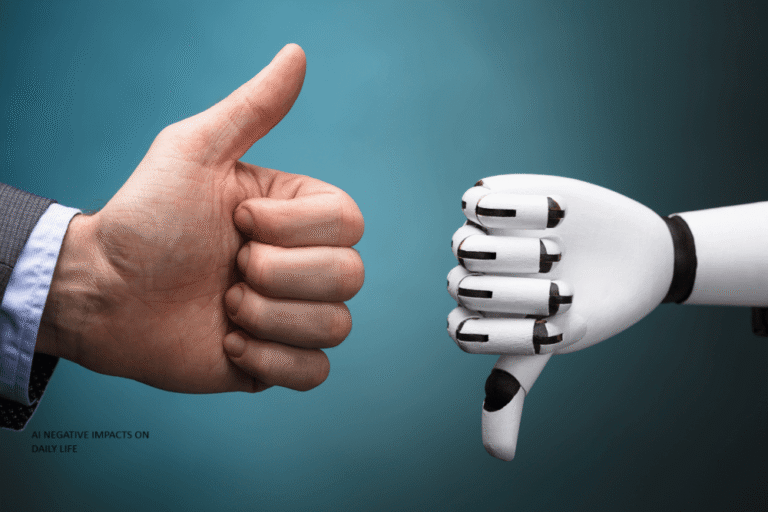What is Artificial Intelligence? Defination,Types,importance
Table of Contents
Toggle
Artificial Intelligence, commonly known as AI, is transforming our world in remarkable ways. It refers to computer systems that can perform tasks that usually require human intelligence. These tasks include understanding language, recognizing patterns, and solving problems.
AI is already present in our daily lives. AI is making things easier for us. It helps businesses analyze data quickly, improving decision-making and efficiency.
As technology continues to advance, the impact of AI will only grow. It has the potential to revolutionize industries such as healthcare, finance, and education. However, with these advancements come challenges, such as ethical considerations and job displacement.
Understanding AI is essential for everyone. By embracing its possibilities while being aware of its implications, we can shape a future where AI benefits society as a whole. In this article you will also learn about AI, importance, history and types.
What is Artificial Intelligence?
Artificial intelligence, or AI, is like a super smart computer brain that can think and learn kind like humans do. It helps machines do cool stuff like understand pics, talk to people, and make decisions. their abilities like learning, reasoning, problem-solving, and understanding language. By studying how we think and process information, AI systems are designed to think smarter and more efficiently, enabling them to perform tasks that once required human intelligence. Whether it’s recommending your next favorite movie or driving a car autonomously, AI is shaping the future in ways we once only imagined.
Moreover, AI is used in various fields, including healthcare, finance, and entertainment. In healthcare, AI can help diagnose diseases by analyzing medical images. In finance, it can detect fraudulent transactions by recognizing unusual patterns.
As technology continues to advance, AI’s role in our daily lives is becoming more prominent. It has the potential to enhance productivity and create new opportunities across different industries. Understanding AI is essential as it shapes the future of how we interact with technology.
Importance of AI in different fields
Artificial Intelligence, or AI, is becoming a vital part of our everyday lives. It helps us in many ways, from making our smartphones smarter to improving healthcare, in safety, in business, and many other fields.

1.In Healthcare
Artificial intelligence (AI) is becoming increasingly important in healthcare. It helps doctors and nurses make better decisions by analyzing large amounts of data quickly. This means that patients can receive more accurate diagnoses and personalized treatment plans.
One major benefit of AI in healthcare is its ability to predict health issues before they become serious. By examining patterns in patient data, AI can identify risks early on. This proactive approach can save lives and reduce healthcare costs.AI-powered algorithms can detect diseases such as cancer, diabetes, and cardiovascular disease at an early stage, improving treatment outcomes.AI can help tailor treatment plans to individual patients based on their genetic profiles, medical histories, and lifestyle factors.
AI also plays a significant role in streamlining administrative tasks. For example, it can automate scheduling appointments and managing patient records. This allows healthcare professionals to spend more time focusing on patient care rather than paperwork.
In addition, AI-driven tools can assist in drug discovery and development. They help researchers find new treatments faster and more efficiently. Overall, the integration of AI in healthcare promises to improve outcomes for patients and enhance the efficiency of medical systems.
2. In Education
Artificial Intelligence (AI) is becoming increasingly important in many areas of our lives, especially in education. It helps teachers personalize learning experiences for each student. With AI, educators can analyze how students learn and adapt their teaching methods accordingly.
AI tools can provide instant feedback to students, allowing them to understand their strengths and weaknesses. This immediate support encourages learners to improve and stay motivated.: AI can generate educational content, such as quizzes, tests, and interactive materials.
Additionally, AI can assist in administrative tasks, freeing up teachers’ time so they can focus more on teaching. For example, grading assignments and managing schedules can be streamlined with AI systems.AI-powered tools can help students with disabilities, such as text-to-speech systems or speech-to-text systems
Moreover, AI can make education more accessible. It can offer resources and learning materials to students regardless of their location or background. This means that everyone has a better chance to succeed.AI-powered educational games, simulations, and interactive activities can increase student engagement and motivation.
In summary, the role of AI in education is crucial. It enhances learning, supports teachers, and promotes equality in access to knowledge. You can also read more information about AI in Education visit our website.
3.In Banking
Artificial Intelligence (AI) is becoming increasingly important in banking. It helps banks operate more efficiently and provide better services to customers.
One major benefit of AI in Banking is its ability to analyze large amounts of data quickly. This allows banks to detect patterns and trends that humans might miss. For example, AI can identify fraudulent transactions in real-time, protecting customers from potential losses.
Moreover, AI can personalize banking experiences. By analyzing a customer’s spending habits, banks can offer tailored financial advice and product recommendations. This makes banking more relevant and useful for each individual.AI-powered systems provide investment insights, portfolio management, and robo-advisory services.
This not only saves time but also reduces errors, allowing bank employees to focus on more complex issues.
In summary, AI is transforming the banking industry by improving security, enhancing customer service, personalizing experiences, and increasing efficiency. Its importance cannot be overstated as it shapes the future of banking.
4. In Security
Artificial intelligence plays important role in the field of security. It helps organizations protect their data and systems from various threats. By analyzing vast amounts of information quickly, AI can identify unusual patterns that might indicate a security breach.
In security, AI tools can monitor networks in real-time. This means they can detect potential risks before they become serious problems. For example, if a hacker tries to access sensitive information, AI can also identify this quickly.
Moreover, AI can improve response times. Instead of waiting for human analysts to notice an issue, AI can act quickly to block attacks and secure data. This quick action can save companies from losing important data or facing financial losses.
Additionally, AI improves physical security as well. Smart cameras powered by AI can recognize faces and alert security personnel about unauthorized individuals. This technology makes buildings safer and helps protect people.
Overall, the importance of AI in security cannot be overstated. Its ability to analyze data and respond quickly is essential for keeping our information and environments safe.
5. In Product Designing
Artificial intelligence (AI) plays a crucial role in product designing today. It helps designers create better products by analyzing vast amounts of data quickly. This means they can understand what customers want and need more effectively. With the help of ai designer also save their time and resources because designer can test different designs which ones work fast.
For example, AI can simulate how a product will look or function before it is made. This saves time and resources, allowing teams to focus on the most promising designs.
Moreover, AI can enhance creativity. By suggesting new ideas or improvements, it inspires designers to think outside the box. This collaboration between humans and machines leads to innovative solutions that might not have been possible otherwise.
Additionally, AI helps in personalizing products for individual customers. By understanding user preferences, designers can create items that attract with their audience. Overall, involvement of AI into product designing not only improves efficiency but also enhances creativity and customer satisfaction.
6. In Science
Artificial intelligence (AI) plays a crucial role in the field of science today. It helps researchers to analyze large amounts of data quickly and accurately. This ability to process information faster than humans can lead to new discoveries .
In scientific research, AI is used in many areas, including biology, chemistry, and physics. For example, AI algorithms can predict how different chemicals will react with each other. This saves time and resources in experiments.
Moreover, AI enhances medical research by identifying patterns in patient data. This can lead to better treatments and early detection of diseases. By using AI, scientists can focus more on creative problem-solving rather than getting bogged down in data analysis.
It not only speeds up research but also opens new ideas for exploration. With continued advancements, AI will likely shape the future of scientific search in exciting ways.
Types of Artificial Intelligence

FOLLOWING ARE THE TYPES OF AI:
1. Interactive AI
refers to artificial intelligence systems that engage with humans in a conversational or interactive manner. These systems can understand and respond to user input, providing assistance, answering questions, or performing tasks. This kind of AI is designed to, making it feel more personal and helpful.
Example:
Chatbots, interactive voice response system, conversational AI platforms
2. Functional AI
Functional AI is all about creating systems that can perform specific tasks effectively, rather than trying to mimic human intelligence in a broad sense. DEFINE Functional AI as technology designed to solve particular problems or enhance certain processes, whether it’s in healthcare, finance, or customer service.
Examples:
Language translater,image recognition, chatbots
3. Analytic AI
Analytic AI is revolutionizing how we interpret vast amounts of data, transforming raw information into actionable insights. At its core, it defines a new era of decision-making, leveraging machine learning algorithms to analyze patterns and trends that would be nearly impossible for humans to detect. This technology empowers businesses to make informed choices, enhancing efficiency and driving innovation.
Examples:
Data mining, business intelligence,coustmer,segmentation
4. Text AI
TEXT AI refers to the use of artificial intelligence to understand, generate, and manipulate human language into text form This technology is transforming how we interact with digital content, making it more responsive. Imagine a world where your devices not only understand your commands but also engage in meaningful conversations, providing personalized recommendations based on your preferences. This is the power of TEXT AI, as it learns from context, emotion, and even subtleties in language that humans often take for granted.
Examples:
Chatbots, content generation, text summarization
5.Visual AI
Visual artificial intelligence, is transforming the way we interact with images and video. This technology can analyze and categorize images, recognize objects, and even generate new visuals based on learned patterns These systems use computer vision and machine learning techniques to process and interpret visual. information.
Examples:
Object recognition, video analysis
Conclusion:
Understanding the different types of AI is crucial as it helps us appreciate how these technologies impact our daily lives. From simple chatbots to advanced machine learning systems, each type serves a unique purpose and offers various benefits. Knowing the definitions and importance of AI can empower us to make informed decisions in a world increasingly influenced by technology. As we move forward, it’s essential to stay curious and keep learning about AI and its potential. So, let’s embrace this exciting journey and explore how we can use AI to improve our lives.
FAQ:
- What is AI?
AI stands for Artificial Intelligence. It refers to computer systems that can perform tasks that usually require human intelligence, like understanding language, recognizing patterns, and making decisions. - What are the main types of AI?
The main types of AI are Narrow AI (designed for specific tasks), General AI (which can perform any intellectual task like a human), and Superintelligent AI (which surpasses human intelligence). - Why is AI important?
AI is important because it helps improve efficiency, automate repetitive tasks, enhance decision-making, and solve complex problems across various fields like healthcare, finance, and education. - Can you give examples of Narrow AI?
Sure! Examples of Narrow AI include virtual assistants like Siri and Alexa, recommendation systems on Netflix and Amazon, and chatbots used in customer service. - How does AI impact our daily lives?
AI impacts our daily lives by improving convenience through smart devices, enhancing security with facial recognition, and providing personalized experiences in apps and services we use every day.







